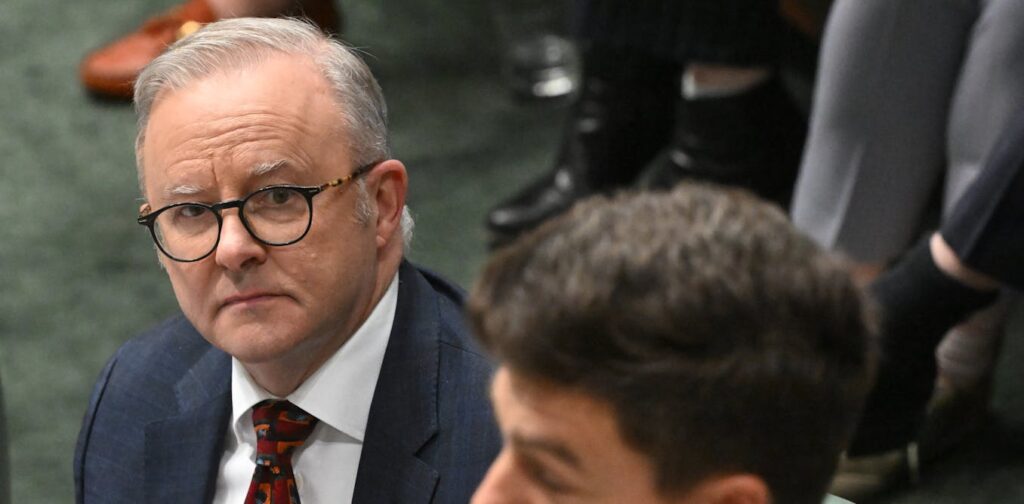
Despite his government’s strong political standing, Australian Prime Minister Anthony Albanese exhibited a touch of irritation this week. He found himself defending the costly agreement with Nauru to house former immigration detainees, which a Senate inquiry revealed could cost up to $2.5 billion over 30 years. Albanese’s terse dismissal of reports regarding “ISIS brides” returning to Australia further underscored the government’s struggles with transparency.
These developments come as the Albanese government introduces new freedom of information legislation, which has been criticized for further restricting public access to high-level decision-making information. Former senator Rex Patrick has labeled it an “Albanese counterrevolution” that undermines citizens’ rights to crucial information.
Dan Andrews’ Beijing Visit Sparks Controversy
Adding to the prime minister’s challenges, former Victorian Premier Dan Andrews’ attendance at China’s military parade in Beijing drew criticism. Although Andrews is now a private citizen, his presence alongside global leaders, including controversial figures, unsettled many within the Labor Party. The parade underscored the delicate diplomatic balance the Albanese government must maintain with China.
Albanese acknowledged Andrews’ presence as unfortunate but refrained from harsh criticism, stating, “I am not responsible for what every Australian citizen does.” Andrews defended his visit, citing it as an opportunity to engage with regional leaders.
Opposition’s Internal Struggles
Meanwhile, the opposition remains mired in internal discord, particularly over climate policy. This week, several senators, including Nationals frontbenchers, defied party lines to support a One Nation motion on immigration. Additionally, Senator Jacinta Nampijinpa Price’s inflammatory remarks about Indian immigration further complicated the opposition’s position.
Despite these challenges, Opposition Leader Sussan Ley scored a victory by pressuring the government on aged care reforms. The Senate’s rare coalition of the Coalition, Greens, and crossbenchers forced the government to expedite home care packages, showcasing the Senate’s ability to challenge the government.
Albanese’s International Agenda
As parliament enters a month-long recess, Albanese turns his attention to international diplomacy. He will attend the Pacific Islands Forum in the Solomon Islands, where leaders will seek insights into Australia’s 2035 emissions reduction target. This target, to be announced later this month, is expected to range between a 65-75% reduction on 2005 levels.
Energy Minister Chris Bowen has indicated that the government may not legislate the target if faced with significant parliamentary opposition. This cautious approach reflects the government’s awareness of potential political hurdles.
Albanese’s most significant diplomatic engagement will be his September visit to the United States. Preparations are underway for a meeting with President Donald Trump, expected to take place either in New York or Washington. The meeting’s outcome will be closely watched, given the unpredictable nature of the U.S. president.
Looking Ahead
As Albanese navigates these domestic and international challenges, his leadership style and political acumen will be under scrutiny. With a strong belief in his judgment, Albanese remains unfazed by criticisms of his government’s cautious approach. However, the coming weeks will test his ability to balance domestic concerns with international obligations, as he seeks to reinforce Australia’s standing on the global stage.






